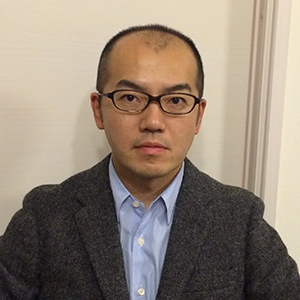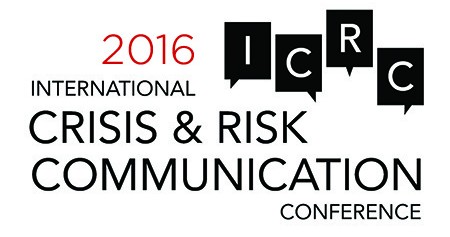
Assistant Professor of the Department of Public Health
Graduate School of Medicine at the University of Tokyo
Tokyo, Japan
Co-Author and Presenter, Jun Tomio:
Dr. Jun Tomio is an assistant professor of the Department of Public Health, Graduate School of Medicine at the University of Tokyo. As a public health specialist and an emergency physician he has involved in various research topics in health emergency management, including disaster medicine, injury prevention, and infectious disease outbreaks. He has been a member of the research group on medical response and preparedness for viral hemorrhagic fever funded by the Ministry of Health, Labour, and Welfare of Japan since 2012, and is tackling a research on crisis and risk communication and legislative issues on high-consequence infectious diseases like Ebola.
Dr. Tomio earned a Doctoral degree in the Graduate School of Medicine at the University of Tokyo in 2010, a European Master in Disaster Medicine from the University of Eastern Piedmont in 2006, and a Master of Science in Public Health from London School of Hygiene and Tropical Medicine in 2004. Before starting public health researches, he received a Medical Degree from the University of Tokyo in 1999 and practiced emergency medicine.
Co-author 1 of 2:
Yasuyuki Kato, MD, MPH
Dr Kato is Chief of Division of Preparedness and Emerging Infections, Disease Control and Prevention Centre, National Centre for Global Health and Medicine (NCGM) in Tokyo. His background is in medicine and infectious disease. He graduated from Chiba University School of Medicine in 1995. After completing clinical training on internal medicine at the Tokyo Metropolitan Komagome Hospital, he began working at the Department of Infectious Diseases, Tokyo Metropolitan Bokutoh Hospital, where he experienced the outbreak of SARS. He has worked with NCGM since 2005. During his time with NCGM, Dr Kato accumulated experience in avian influenza (H5N1) and tropical infectious diseases in Vietnam and Crimean-Congo haemorrhagic fever in Turkey. During that time, he also obtained his MPH from The Johns Hopkins University.
Since 2011, he has been the principal investigator of the highly infectious diseases clinical response research group (Ministry of Health, Labour, and Welfare Grant-in-Aid for Scientific Research). In that capacity, he has been involved in supporting medical institutions designated for highly infectious diseases across Japan. In 2012, he was sent to Uganda for the control of the simultaneous outbreak of Ebola and Marburg haemorrhagic fevers as a WHO consultant. In May and August 2014, he was sent to Liberia to support the outbreak response for Ebola virus disease again. He is a member of the national case management committee on highly infectious diseases in Japan.
Co-author 2 of 2:
Narumi Hori, RN, MPH, M.Ed
Narumi Hori, RN, MPH, M.Ed, is Organizer of the Epidemic Intelligence Services in Diseases Control and Prevention Center (DCC), National Center for Global Health and Medicine (NCGM), Japan. She is a specialist in infectious diseases prevention and risk communication. She has contributed a variety of outbreak communications included Dengue and Ebola as an infectious disease specialist.
Ms. Hori earned MPH in Field Epidemiology Training Program (FETP)-Japan, National Institute of Infectious Diseases in 2009 and M,Ed at Graduated School of Education, Gakugei University. She also practiced as a clinical and research nurse at the Department of Infectious Diseases, Tokyo Metropolitan Komagome Hospital.
2015
Crisis and risk communication related to Ebola in healthcare facilities in Japan
Dr. Jun Tomio
Disease Control and Prevention Center, National Center for Global Health and Medicine (Japan)
Narumi Hori, RN MPH
Yasuyuki Kato, MD MPH
The outbreak of Ebola virus disease (EVD) in West Africa in 2014 has become an international public health emergency. Although we have no confirmed case of EVD in Japan as of the end of November 2014, the experience of three suspected cases highlighted the challenges in crisis and risk communication in the healthcare setting, including hospital preparedness for public communication and information sharing among the relevant organizations.
In Japan, a patient with viral hemorrhagic fever (VHF) including EVD should be managed in the designated hospitals per the Infectious Disease Law, and strict infection control measures should be taken in collaboration with the local government. However, most of the designated hospitals and the relevant public organizations have been concerned about the risk management procedures, including infection control and multiagency coordination.
In response to the demand for improved patient management, the expert physicians and nurses of the research group on the clinical response and preparedness for viral hemorrhagic fever (VHF) funded by the Ministry of Health, Labour and Welfare have started a series of workshops to help the designated hospitals as well as the relevant public organizations, including local health authorities, public health centers, quarantine offices, and fire departments prepare for managing Ebola. The workshop consists of lectures, tabletop exercises, and practice with personal protective equipment (PPE) and is designed to facilitate information sharing and building a good relationship among the key players, essential for successful risk communication. In this study, we illustrate the crisis and risk communication challenges involved in dealing with EVD and evaluate the potential impact of the workshop on risk communication in healthcare facilities.


